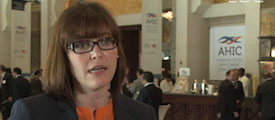The International Hospitality Investment Forum (IHIF) 2024 took place in Berlin in mid April 2024. Like many recent articles, insights and data we have seen recently, the increasingly positive results in terms of sector growth continue to be treated with caution as investors seek to secure long-term value.
Here we look at the current UK investment landscape and highlight some of the key themes from IHIF such as expansion strategies, the future of hotel operations and what they mean to the global investment infrastructure.
UK Investment and Market Dynamics
The UK hotel market has seen a robust recovery, with investments soaring to £1.7 billion in the first quarter of 2024—marking the highest level since 2019 and a 138% increase from the first quarter of 2023.
In this article from Hotels, David Eisen cites recent data from Cushman and Wakefield to say “London accounted for 60% of major deals by volume and included the sale of Atlas House to Integrity International Group and the BT Tower to U.S.-based hotel owner and operator MCR Hotels” These deals highlight a growing trend of converting non-hotel assets into hotels, a strategy expected to continue shaping the market.
The transaction volume in this quarter spanned 93 properties across the UK, encompassing around 7,600 rooms. Major portfolio deals like the Edwardian UK Radisson Hotel Portfolio and the LXi REIT Travelodge Portfolio made up 60% of the transaction volume. Private buyers dominated the market, responsible for 69% of the transactions, followed by public investors and institutional-backed capital.
Ed Fitch, head of hospitality UK & Ireland at Cushman & Wakefield, commented on the sustained high performance of the UK hotel sector, which is stabilising as the new norm. Despite a strong capital interest, the market faces constraints due to a limited number of available properties and cautious buyer sentiment ahead of expected base rate cuts and the upcoming UK election.
Strategic Expansion
Speaking at IHIF in Berlin, Sir Rocco Forte outlined his group’s strategy to leverage its strong U.S. customer base, where 40% of its business originates, and explore high-demand locations like New York, Los Angeles, Beverly Hills, and Miami, despite high entry costs. The investment from PIF, which acquired a 49% stake in the hotel group, is poised to double the size of Rocco Forte’s portfolio within five years, including launching The Carlton Hotel in Milan and a new venture with fashion company Capri Group in Naples by 2027.
Sir Rocco highlighted the group’s commitment to maintaining high service standards in the face of rising costs and continuing to manage food and beverage operations in-house to ensure quality. He also emphasised the importance of enhancing employee remuneration and working conditions, reflecting on COVID-19 as a catalyst for improving employee welfare and aligning hotel operations closely with local cultures.
Regional Opportunities
On Day 2 of IHIF, hotel executives highlighted increasing investments and travel interest in Mediterranean destinations, contrasting with the economic challenges in northern Europe such as Germany.
Hotel News Now reported that that Tim Abram of Starwood Capital acknowledges the difficulties in Germany due to a sluggish economy and high interest rates but reiterated the country’s strong investment potential.
On the other side of the coin, Italy is being seen as an emerging hotspot for hotel investments, similar to Spain a decade ago. Marcello Cicalò of Bluserena Hotels & Resorts noted Italy’s fragmented market and rising asset values are attracting significant private equity interest. Andreea Bodea of Pygmalion Capital noted that while Italy can boast the highest room count in Italy, many owners are still struggling to attract the investment their properties need in order to meet and exceed the expectations of the modern traveller.
Operational Insights and Future Prospects
The forum highlighted the critical need for operational efficiency and adapting to evolving consumer expectations. The changing landscape of hotel food and beverage services was a focal point, emphasising innovation and operational optimisation to boost profitability. Sébastien Bazin of Accor shared insights from the company’s decade-long transformation, emphasising the importance of digital integration and stable leadership amidst a volatile geopolitical landscape. “Navigating new challenges requires a robust blend of innovation and tradition,” Bazin remarked during his session.
Customer Loyalty and Guest Experience
Hospitality Investor reported on a fascinating panel discussion that once again highlighted the evolving concept of loyalty in the hospitality sector. The discussion, featuring insights from Antonio Gonzalez, CEO of Sunset Hospitality Group, and Gregory Lanter, a senior executive at Club Med, emphasised the shift from traditional transactional loyalty to a more emotionally driven model.
Gonzalez elaborated on the importance of experiential hospitality that withstands changes in pricing strategies or market trends. By launching Sunset Hotels & Resorts, his group aims to expand its portfolio significantly by 2026 while focusing on crafting unique experiences that resonate on a personal level with guests.
Lanter shared similar sentiments, pointing out that the real value lies in providing life-enriching human experiences beyond the standard offerings of rooms and amenities. He stressed that the key to achieving this is through employees who possess strong interpersonal skills rather than just technical capabilities, enabling them to engage with guests meaningfully.
Both leaders highlighted the role of technology in enhancing guest experiences. Gonzalez discussed how technology could leverage data to better predict customer preferences and streamline experiences, making them more seamless and personalised.
Meanwhile, Lanter viewed AI as a disruptive tool that can revolutionise how guest services are delivered, particularly in tailoring the marketing and distribution of these personalised experiences.
Market Optimism Amidst Challenges
Despite macroeconomic uncertainties, the forum radiated a general optimism about the hospitality market’s future. The European M&A outlook appears promising, reflecting improvements in deal structures and an increase in strategic investments. However, the forum also acknowledged challenges such as rising costs, interest rates, the current geo-political instability and the necessity for flexible business models to adapt to rapidly changing market conditions.
In conclusion, IHIF 2024 offered invaluable perspectives on the continued resilience and adaptability of the hospitality industry, highlighting the sector’s commitment to growth and innovation. The discussions reflect the industry’s concerted efforts to navigate a complex global landscape while pursuing expansion and refinement.









